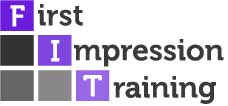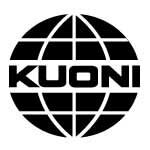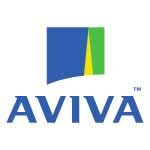Onboarding new customer service team members effectively is crucial for any organisation, especially when they’re in customer facing roles where first impressions matter.
A well-executed onboarding process can lead to higher employee satisfaction, reduced attrition and improved customer interactions. Sadly it’s still fairly common for new customer service recruits to be “thrown in at the deep end” leaving individuals to sink or swim from Day 1 with little formal support (believe me it’s more common than you might think).
So this week we’re highlighting some of the best practices for onboarding Customer Service Representatives (CSR’s) to ensure they are given the very best platform upon which they can develop their knowledge and skills, become an effective member of the team and provide world-class service for your customers at the earliest opportunity.
Develop a comprehensive onboarding plan
A detailed onboarding plan serves as a roadmap for new employees, guiding them through their initial days and weeks and should serve to increase the likelihood of the recruit “going the distance” through their induction programme and beyond.
Typically the plan should seek to address some/all of the following elements depending on the size and nature of your business;
Pre-Onboarding Preparation
- Welcome Pack: Send a welcome pack with all the information they’ll need before commencing their employment, including company culture, policies, and a brief overview of their role.
- Setup:Ensure all necessary equipment and software access are ready before they arrive for their first day. Desks, PC/laptop, headsets, email access etc. are all essential tools of the job and should be well prepared and connected.
Introduction and Orientation
- Company Overview: Provide an introduction to the company’s history, mission, vision, values, and organisational structure.
- Team Introduction: Introduce new hires to their team members, key stakeholders and those directly influencing the customer experience at other points in the service chain.
- Office Tour: If applicable, give a tour of the office or a virtual tour for remote employees.
Role-Specific Training
- Job Description: Clearly define roles, responsibilities, and performance expectations.
- Product/Service Training: Comprehensive training on the company’s products or services, including features, benefits, and common issues.
- Customer Service Training: Training on customer service principles, including active listening, empathy, communication skills, and problem-solving techniques.
Systems and Tools Training
- CRM Software: Training on customer relationship management (CRM) systems and other relevant tools.
- Communication Platforms: Training on the use of email, chat, phone systems, and other communication platforms.
- Knowledge Base: Introduction to the company’s knowledge base or help centre resources.
Policies and Procedures
- Company Policies: Detailed explanation of company policies, including attendance, dress code, and confidentiality.
- Customer Service Protocols: Training on standard operating procedures (SOPs), escalation processes, and handling difficult situations.
- Compliance Training: Any required compliance training, such as data privacy regulations and industry-specific rules.
Shadowing and Mentorship/Buddying
- Shadowing: Allow new hires to shadow experienced CSRs to observe how they handle calls, emails, and chats. Naturally it makes sense to ensure the experienced agents you select are representing the brand to a very high standard to avoid bad habits being picked up from the outset
- Mentorship/Buddying: Assign a mentor or buddy to provide ongoing support and guidance. Through mentorship, CSR’s receive tailored advice and feedback from experienced colleagues, which helps them quickly adapt to their roles and develop essential skills. This one-on-one support not only accelerates learning and boosts confidence but also encourages a culture of continuous improvement and collaboration.
Coaching:
Coaching is essential for a CSR’s development – delivered well it consistently personalises guidance and constructive feedback, enabling CSR’s to refine their skills, improve their problem-solving abilities, and enhance their customer interaction techniques. Whether coaching is provided by the team leader or dedicated team coach, this continuous support helps CSR’s stay motivated, confident, and aligned with the company’s standards and goals.
Effective coaching also fosters a growth mindset, encouraging CSR’s to embrace challenges and strive for excellence. Ultimately, coaching leads to higher job satisfaction, better customer experiences, and improved overall performance within the customer service team.
Practice and Role-Playing
- Simulated Scenarios: Conduct role-playing exercises to practice common customer interactions and troubleshooting.
- Feedback Sessions: Provide constructive feedback on their performance during practice sessions. Constructive feedback helps new hires quickly identify areas for improvement and reinforces positive behaviours, accelerating their learning curve. It fosters a culture of open communication and continuous improvement, ensuring reps are aligned with company standards and expectations from the start. Regular feedback during induction boosts confidence, motivates reps to perform better, and reduces the likelihood of recurring mistakes.
Nursery or Incubator Periods
Larger, more structured contact centres, and particularly those who work in highly regulated industries, incorporate nursery/incubator periods into their induction programme.
Essentially it’s a specialised onboarding phase designed to help new customer service recruits transition from training to handling live customer interactions independently. This environment provides a supportive and controlled setting where new hires can apply what they have learned, build confidence, and receive real-time feedback.
Performance Evaluation and Feedback
- Performance Metrics: Setting clear performance expectations from the outset helps new employees understand what is required of them. Discuss key performance indicators (KPIs), goals, and benchmarks they need to meet.
- Regular Check-Ins: Regular check-ins and feedback sessions during the onboarding process ensure they are on the right track and allow for timely adjustments if necessary.
Continuous Learning and Development
Onboarding should be viewed as the beginning of a continuous learning journey. Encourage new employees to pursue further learning and development opportunities, such as additional training sessions, workshops, and online courses. Providing access to resources for ongoing education helps them stay updated on industry trends and improve their skills.
- Ongoing Training: Offer continuous learning opportunities, such as advanced customer service training, product updates, and professional development courses.
- Feedback Loop: Encourage new hires to provide feedback on the onboarding process and suggest improvements.
Create a Supportive Work Environment
A supportive work environment fosters a sense of belonging and motivation among new employees. Encourage open communication, celebrate successes, and promote collaboration. A positive work culture not only enhances employee satisfaction but also translates into better customer service.
Integration and Socialisation
- Team Building Activities: Organise team-building activities to foster a sense of community and belonging.
- Cross-Department Interaction: Facilitate interactions with other departments to provide a broader understanding of the company.
Final Review and Certification
- Assessment: Conduct a final assessment to ensure the new hire is fully prepared for their role and confirm they’ve successfully achieved the standards required of a fully-fledged CSR.
- Certification: Provide certification or acknowledgment upon completion of the onboarding programme. It’s a nice touch and helps them feel like a fully integrated member of the team.
Here at FIT we’ve seen both highly professional and poorly executed onboarding and induction programmes over the last 23 years. Assuming the recruiters have done their jobs well hiring people with the right knowledge, skills and attitudes to fulfil the CSR role, effective onboarding becomes the cornerstone of building a competent and motivated customer service team. It sets the stage for long-term employee success and satisfaction and ultimately leads to reduced attrition, enhanced customer experiences and business growth.


















